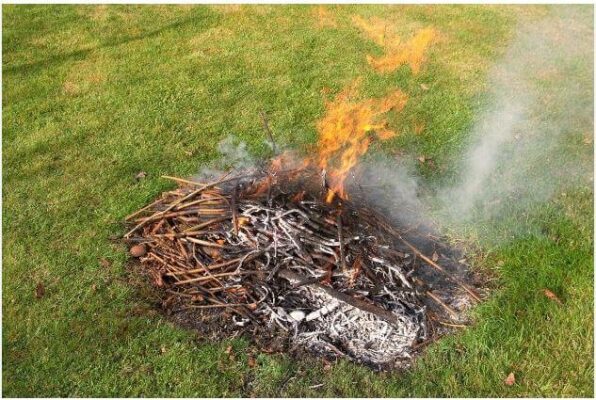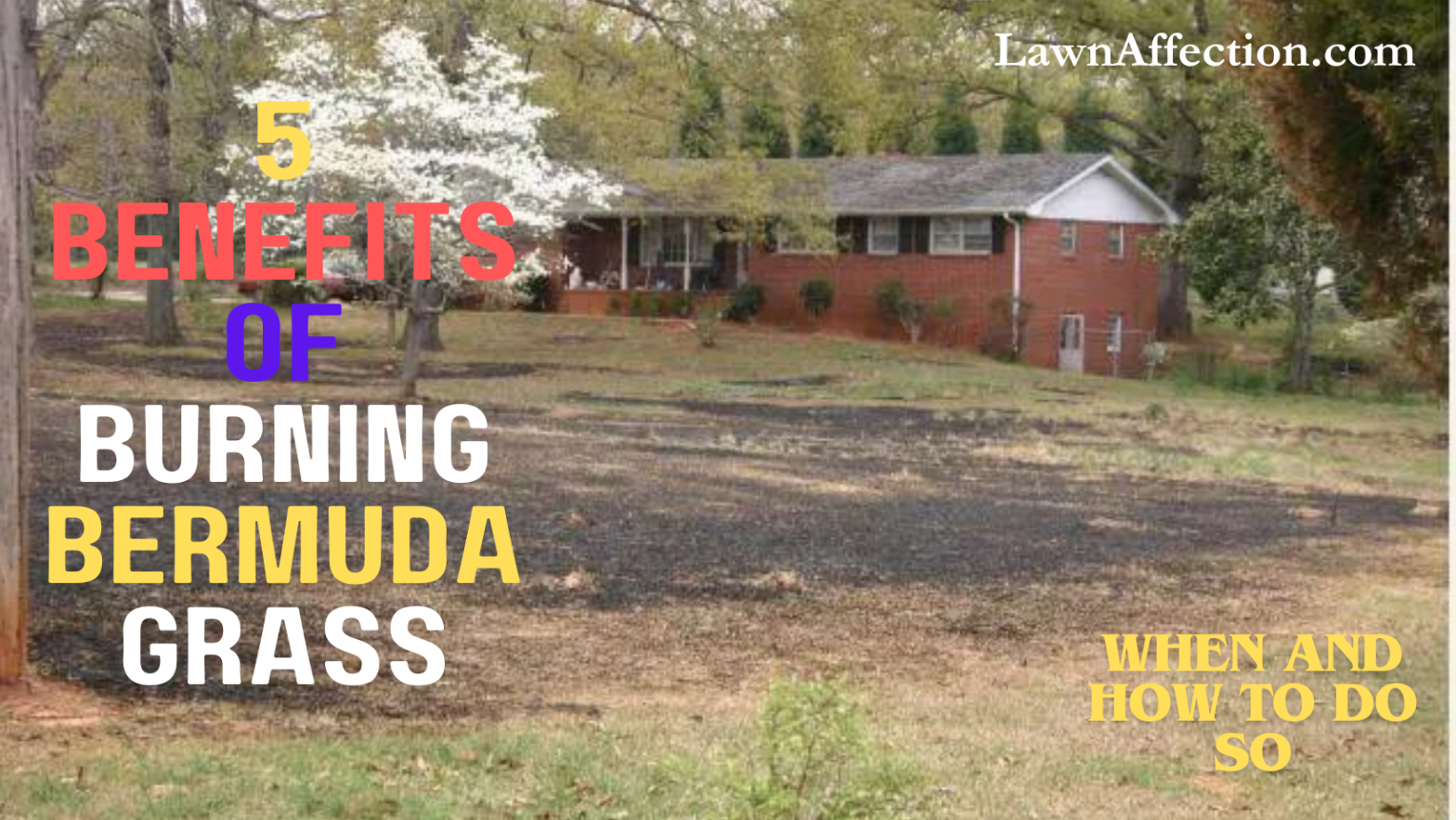HAVE you seen gardeners and homeowners conducting controlled burnings of their lawns and fields? Do you know when and why this is done? In this article, we’ll discuss burning Bermuda grass, when to do it, and why. Read on to learn more.
Burning Bermuda grass is best done in early spring or before spring greens up and when there’s no danger of frost. The reasons for this practice are to remove thatch buildup and boost the growth of fresh and tender grass. Grass burning also helps in nutrient absorption, eliminating weeds, pests, and diseases and reducing the use of harmful chemicals.
When to Burn Bermudagrass Lawn
Proper timing is crucial when burning your lawn. The best time for this practice is early spring or before spring green up. Lawn experts recommend doing it after confirming the danger of frost has passed.
Besides, ensure you burn yard grass during the day when it’s wind-free to reduce the risks of fire hazards. Also, ensure you carry out the process when humidity is low, and the turf is dry.
If your property is near the roads, avoid grass burning when the traffic is high. This helps prevent vehicle accidents due to heavy, dark smoke.
Benefits of Burning Bermuda Grass
If you are unsure whether it is a good idea to burn Bermuda grass, this section could help you decide. Here are the top five benefits why you should burn yard grass:
1. Removes thatch buildup
Bermuda grass is more susceptible to thatch buildup than other grass types. Burning helps eliminate these dead leaves, organic matter, and the blades of grass resting on top of your lawn.
2. Boosts the growth of fresh and tender grass
Most gardeners think that the only way to encourage the growth of fresh and tender grass growth is by regularly mowing the lawn. However, the best way to do it quickly is by burning grass.
3. Helps eliminate weeds, pests, and diseases
Thatch and other organic matter in the yard hold harmful insects and lawn diseases. Fire helps kill pests, fungi, and harmful bacteria at the soil surface. Also, burning grass helps control weeds as the fire burns all the weed seeds and plants in the ground.
4. Adds nutrients to the soil
Thatch holds onto essential nutrients and moisture, inhibiting them from reaching the grassroots. So, burned grass helps the blackened yard surface to absorb more sunlight, water, and nutrients, helping the grass to grow efficiently.
5. Reduces the use of harmful chemicals
Most pesticides used on gardens and lawns are dangerous and pollute the environment. Therefore, burning lawns instead of spraying with these chemicals helps reduce the risks of using them.
How to Burn Your Lawn

Here is the safest step-by-step process for burning your lawn;
i. Cut your grass to the desired level.
ii. Choose a safe time to burn your grass. Carry out the process during a wind-free day and when the grass is dry.
iii. Manage your fire to prevent it from spreading beyond the yard. Avoid leaving it unattended.
iv. Contain and prevent the fire from spreading by cutting traces around the lawn perimeter.
Frequently Asked Questions (FAQs)
Q: When should I burn my lawn?
A: Early spring is the best time to remove thatch with fire. Ideally, do it before spring greens up once you confirm that there is no frost danger. Also, ensure you burn the grass during the day when there’s no humidity, the turf is dry, and there is no wind.
Q: Is burning grass safe?
A: Most experts don’t recommend using fire to remove thatch because of fire hazards and safety concerns. Although this fire is controlled, sometimes it’s unpredictable and can easily get out of hand. For this reason, professionals recommend managing thatch by dethatching, aeration, scalping, and other lawn care practices.
Final Words
Lawn care experts recommend burning Bermuda grass annually due to the several benefits associated with the practice. These benefits include eliminating weeds, pests, and diseases, reducing the use of harmful chemicals, and allowing the absorption of nutrients into the soil.
Burning grass also helps remove thatch buildup and boosts the growth of fresh and tender grass. The practice is best done in early spring. Although this exercise sounds safe and easy, planning is needed to carry out the process effectively.


